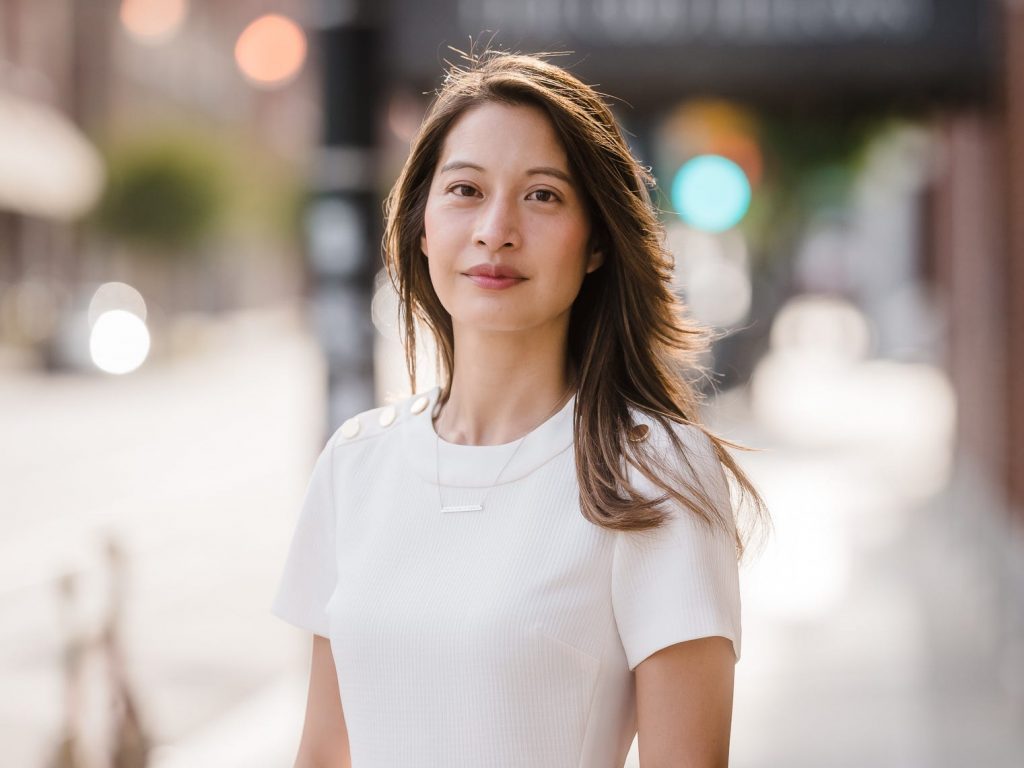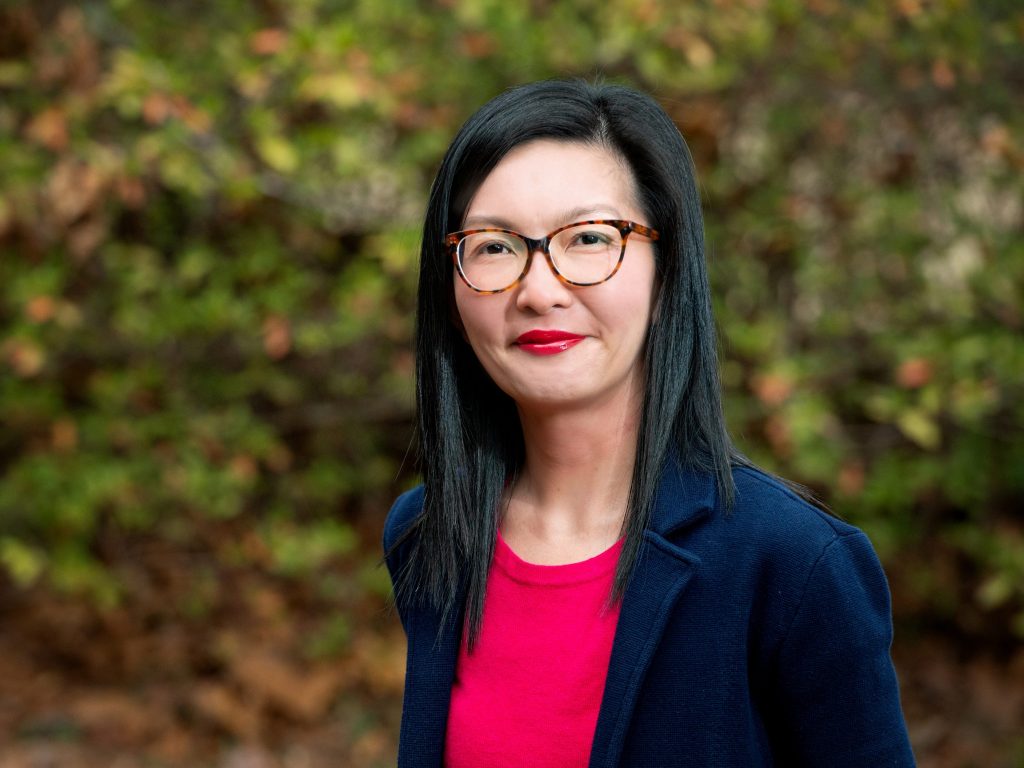- Asian American women hold elected office at lower rates than men.
- AAPI female candidates say they encounter sexism and racism when running for office.
- New organizations aim to close the gap by electing AAPI women in states with significant AAPI voters.
Michelle Au, a Chinese American Democrat, was elected to Georgia State Senate in 2020. She is the only Asian American woman in the state's senate—a fact that has been "conspicuous in a number of ways," she told Insider.
Last November, the Republican-controlled Georgia state legislature finalized the redrawing of congressional maps in favor of Republicans, and dramatically altered the makeup of Au's district from "majority-minority" to majority-white and conservative-leaning.
While Au now plans to run for a House seat instead, she sees the redistricting as a way to "suppress emerging voices."
Au is one of only 77 state legislators who identify as female Asian American or Pacific Islander (AAPI) in the entire country. That's one percent of the nation's total 7,383 state legislators, according to figures from the Center for American Women and Politics at Rutgers University.
Even within the AAPI community, Asian American women hold elected office at lower rates than Asian American men, according to research by the non-profit New American Leaders.
The reasons for such drastic under-representation vary, political experts say, but are often attributed to existing power structures that favor men and male candidates of color. Advocates also say there is a severe shortage of symbolic representation—where AAPI women rarely see themselves reflected in political leadership.
'They could see me, and they could hear me.'
Sonia Chang-Diaz, a Massachusetts state senator, who is Latina and Asian American, said that marginalized people often encounter negative feedback when they step up to run for office.
"There are going to be a lot of people and a lot of forces along the way that will tell you that it's impossible," said Chang-Diaz, "Or you don't look the right way or sound the right way."
Bee Nguyen, who became the first Asian American woman in the Georgia State Legislature in 2017, said that as she was gearing up for the race, she recognized that many voters would be seeing an AAPI candidate running for state office for the very first time.
"What was important was to build relationships with voters in my district, and to have those conversations, so they could see me and they could hear me, and I could listen to them," Nguyen told Insider.
Now, as a candidate for Georgia Secretary of State heading into a runoff following this month's Democratic primary, Nguyen says she has prepared herself for the scrutiny that women of color disproportionately face compared to their white counterparts.
"Even now, as I'm running for secretary of state," Nguyen says, "there are people who are telling me that I'm a foreigner, and we shouldn't elect foreigners, and I should go back to my own country."
Au, who is also a practicing anesthesiologist in the Atlanta area, started on her path to politics a decade after finishing her medical residency and going on to pursue a master's in public health. The public health degree, she said, helped her realize, "why things worked the way they did, and probably more importantly, why things didn't work for our patients."
In 2019, the State Senate seat in her district opened up. Au looked everywhere for the right candidate without ever considering herself.
"I hadn't really seen that many people who looked like me, who had my background, do this kind of work," Au said. And like Nguyen, Au felt that Georgia state voters may be encountering an Asian face for the first time. "I was like, 'Is Georgia even ready for this?'"

Building 'full pipelines' to elected office.
When Diana Hwang got her first job as a State House aide in Massachusetts, she recalls that her father started crying. "He was so worried about me," she said, and told her, "You'll never be one of them."
The comment is one that many children of immigrants can relate to, Hwang said, but instead of discouraging her, it pushed her toward action. In 2009, she founded the Boston-based Asian American Women's Political Initiative (AAWPI), the country's only organization that advocates for greater representation of AAPI women in political leadership.
Organizations for female political leadership didn't prioritize her identity as an immigrant, and those focused on Asian Americans didn't prioritize issues like reproductive health, she said.
With the Supreme Court poised to overturn Roe v. Wade, the legal precedent that makes abortion legal, Hwang said "AAPI women voters are galvanized to turn out, and that a new generation of AAPI women will run."
The year 2020 saw a record surge in AAPI voter turnout, a change that community groups partly attribute to greater interest in civic engagement following spikes in anti-Asian violence and hate crimes over the past two years—particularly following last year's shooting in Atlanta that killed six women of Asian descent. And for AAPI women, the shooting made more urgent the need to "change the invisibility that leaves our community so vulnerable to targeted hate," Hwang said.
AAWPI is engaging in "full pipeline" building, Hwang said, where by funding young AAPI women leading civic projects and giving them opportunities to work in the Massachusetts state house, the group hopes to mobilize voters in states with fast-growing AAPI populations to elect progressive AAPI women.
"The later end of the pipeline inspires the early end of the pipeline, the early end of the pipeline elects later in the pipeline," she said.
'Being the first means being the only.'
After Au was elected, she says she felt the heaviness of being the first—and still only—Asian American woman to serve in the Georgia state senate.
"The responsibility of serving in this role, in the different ways that I do serving it, can sometimes feel like a weight to carry because you feel that a lot of people are counting on you," Au said. "Being the first means being the only, and that can feel a little bit lonely or isolating sometimes."
The need for support, and for a community, was something Chang-Diaz, the Massachusetts state senator, felt when she entered the state house as the only Asian American over a decade ago. Though there are now seven AAPI state legislators, Chang-Diaz says she initially sought out "fellowship and sisterhood" on her own.
Supporting AAPI women throughout the political process is also something Hwang says she's keenly aware of, and modeled AAWPI's fellowship after what she wished she'd had when she ran for Massachusetts state senate in 2016.
"The whole point is to create, in some ways, an army of potential staff, potential volunteers, to help elect AAPI women later down the line," she said. "We try to surround you in every way with support."
